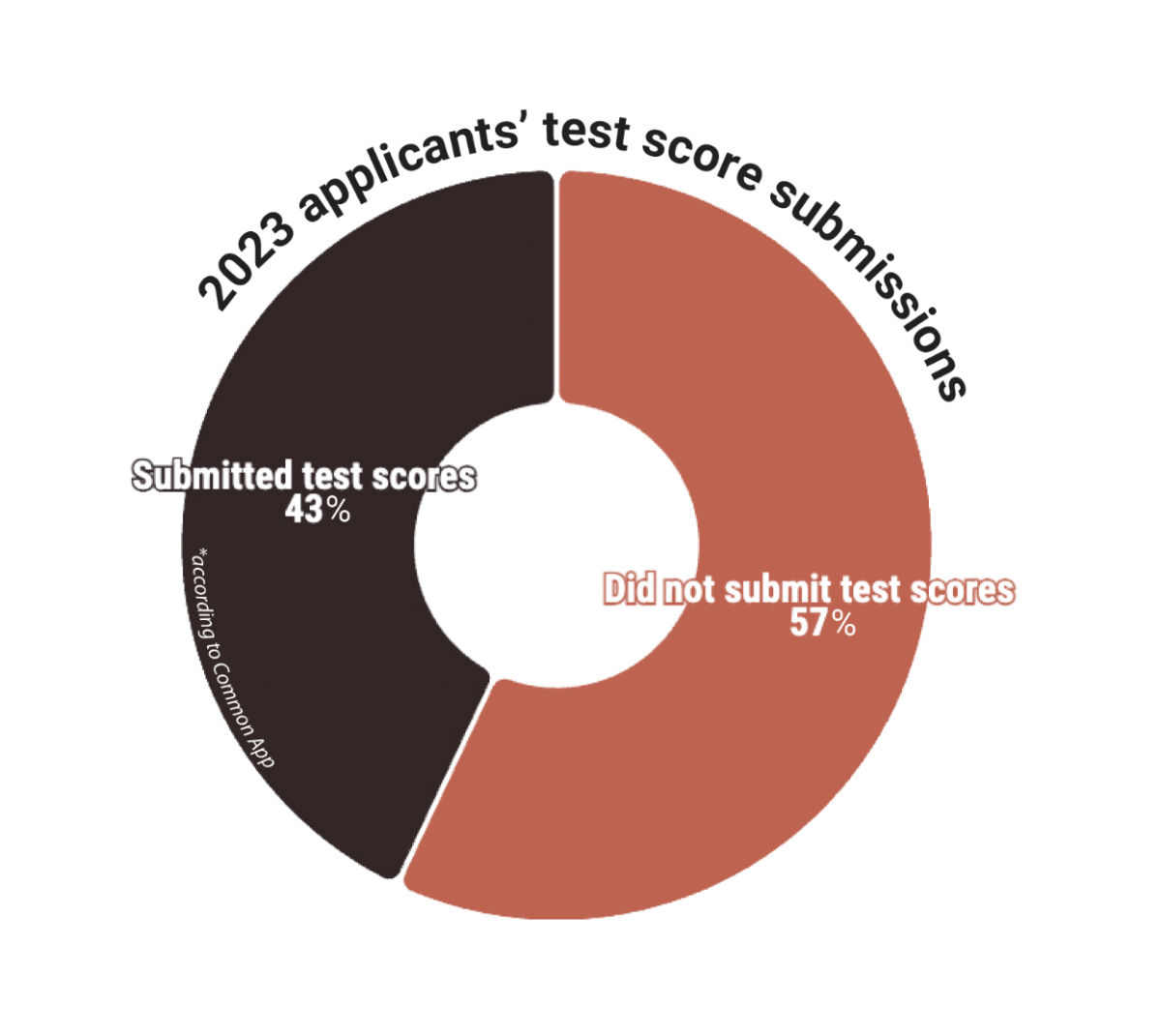At some point in our high school careers, each and every one of us will sit down to take a standardized test. But, why do we need them? Why are they so important?
Though standardized tests serve as a way for colleges to review candidates, their whole process is more of a stressor to students than a benefit.
Today most colleges don’t even require SAT or ACT scores. In fact, 1,900 four-year colleges are test optional in 2024, according to U.S. News and World Report, and 85 institutions are test-blind, Higher ED Dive stated.
In 2023, only 43 percent of college applicants submitted their SAT or ACT test scores, according to Common App. This is 74 percent lower than before the pandemic, The New York Times stated in an article about “the messy fight over the SAT.” So, why are we even still spending our time preparing for and taking these tests?
Nationally, most students will take this test twice, Coursera reported. At some point, you begin to wonder if the whole process is even fair. As a junior, every student I know—including myself—tends to take their test of choice multiple times, which can take a financial toll. Those who are well off can pay for private tutors or test-prep classes that give an advantage, according to The New York Times article.
Even so, if you do decide you want to submit your scores, you first have to choose between two differing types of exams, the SAT or ACT, and figure out which one is best for you. Both of the tests are taken in different durations of time and scored differently. Recently, the SAT was actually moved online while the ACT is still on paper.
“Standardized tests can only, at best, evaluate rote knowledge of math, science, and English,” online encyclopedia Britannica explained. “The tests do not evaluate creativity, problem solving, critical thinking, artistic ability, or other knowledge areas that cannot be judged by scoring a sheet of bubbles filled in with a pencil.”
However, a study by Dartmouth University shows that students evaluated with test scores alongside their high school grades were more successful in college, NBC News reported. Standardized tests also helped Dartmouth receive high-academic students from lower income families providing the university with more diversity. Starting with the class of 2029, Dartmouth will resume requiring applicants to submit test scores.
All in all, submitting your score only aids your application if you are a good test taker in these areas or have the time and money to invest. There is so much pressure to do well on them that it nearly seems like it defines your future. This pressure in turn has the possibility of negatively affecting students’ anxiety and mental health, which cycles back into poorer scores.
The stress of these tests are overlooked and a common pressure for students when they are supposed to be excited about applying for their new life.











